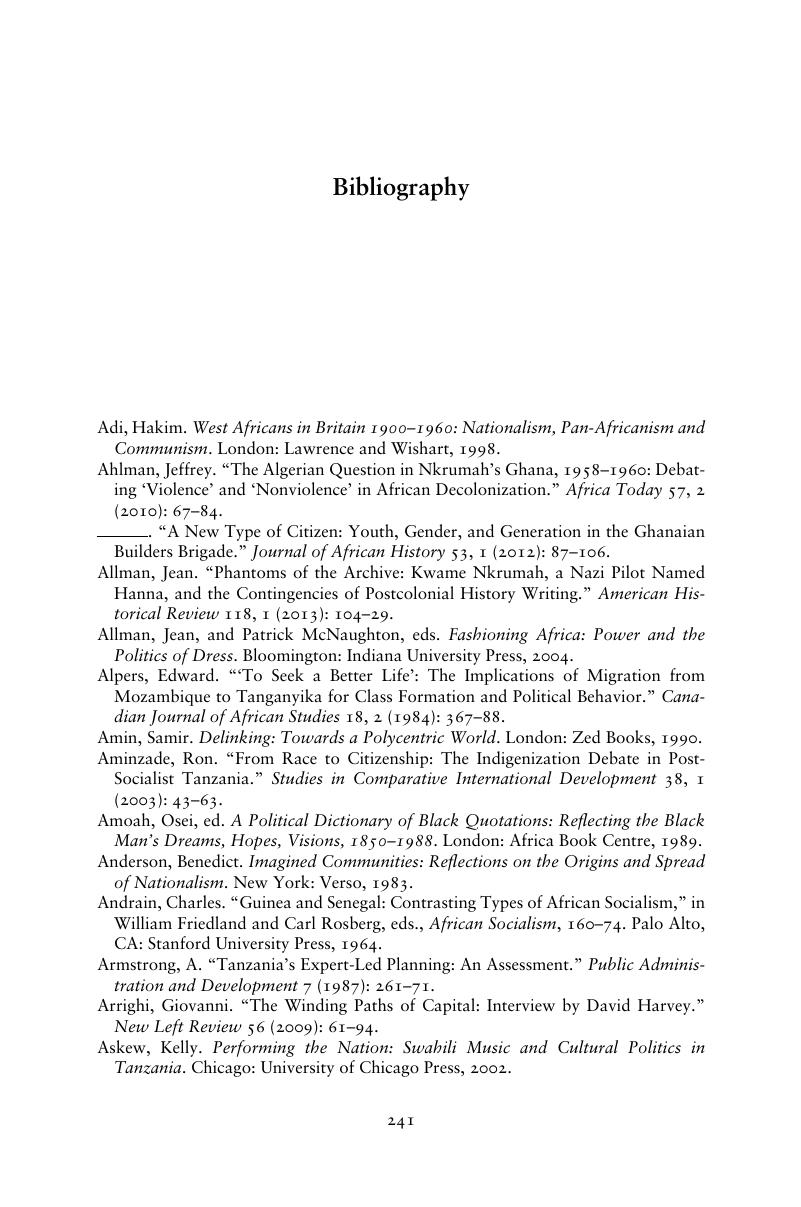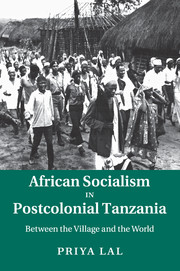Book contents
- African Socialism in Postcolonial TanzaniaBetween the Village and the World
- African Socialism in Postcolonial Tanzania
- Copyright page
- Contents
- List of Figures and Maps
- Book part
- Frontispiece
- Introduction
- 1 A Postcolonial Project in the Cold War World
- 2 Militants, Mothers, and the National Family
- 3 Uneven Development and the Region
- 4 Remembering Villagization
- Conclusion
- Bibliography
- Index
- References
Bibliography
Published online by Cambridge University Press: 05 December 2015
- African Socialism in Postcolonial TanzaniaBetween the Village and the World
- African Socialism in Postcolonial Tanzania
- Copyright page
- Contents
- List of Figures and Maps
- Book part
- Frontispiece
- Introduction
- 1 A Postcolonial Project in the Cold War World
- 2 Militants, Mothers, and the National Family
- 3 Uneven Development and the Region
- 4 Remembering Villagization
- Conclusion
- Bibliography
- Index
- References
Summary

- Type
- Chapter
- Information
- African Socialism in Postcolonial TanzaniaBetween the Village and the World, pp. 241 - 256Publisher: Cambridge University PressPrint publication year: 2015

